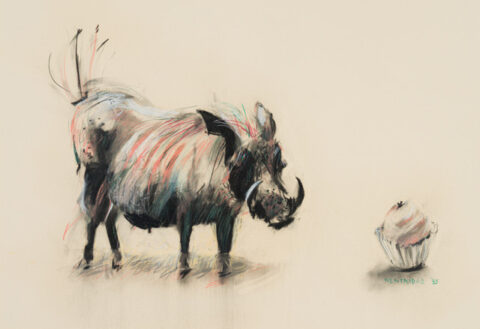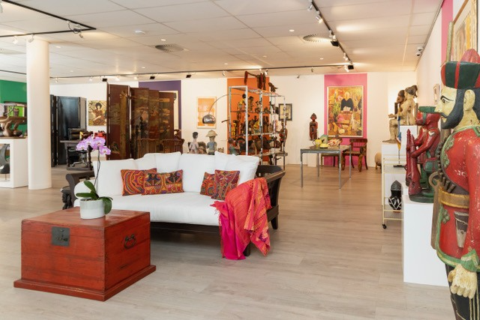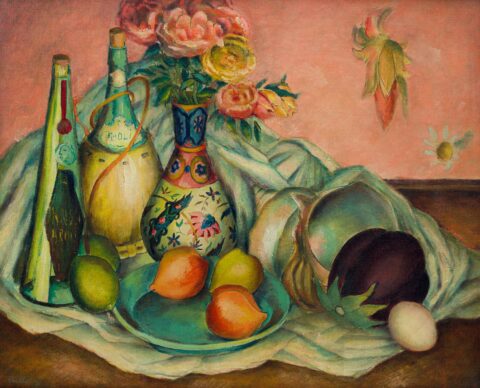Celebrating Women
Changing The Gender Agenda
Madonsela, former public protector, is now firmly ensconced in her new role as a professor of law at Stellenbosch University where she has held a chair in social justice since January 2018.
Professor Thuli Madonsela speaks very softly, so softly that it’s often difficult to hear her if one is not paying 100 per cent attention. But she doesn’t need to shout because her words carry so much power. “We have made enormous progress since the famous women’s march in 1956, especially with regards to formal equality, but we have lost momentum, especially over the past 10 years,” she says.
“At the level of formal equality, we have won everything. No one can discriminate against a woman openly because she is a woman. At the level of political equality, a lot of progress has also been made. There has also been some progress with regards to economic equality. However, we could have done more if there was adequate political will.”
Madonsela says the 1956 generation was very clear about women playing their part in advancing South Africa. It was not only about women’s rights. It was about them being equals.
“I feel that under Nelson Mandela there was the same thing, where women were treated as equals, and some like (then Speaker) Frene Ginwala ran parliament as a true equal of the men. She was not a proxy, and when she called everyone to order, she did it in a very dignified way without fear that she would be removed from office. More recently, women are either in power as proxies, or we don’t have them.”
Inspirational women leaders
Madonsela draws a lot of inspiration from previous generations of women leaders. “I once interviewed (the late) Mama Helen Joseph, who told me that there was a time when women could attend ANC meetings, but were not allowed to be members or to speak. They could only make tea. One day, Mama Joseph said, the women decided ‘we are no longer tea-makers. You are going to make the tea and we are going to talk’. I am raising that because I think that women today have formal power in the political space, but sometimes at the level of the quality of leadership, they settle for tea-making,” she says. Madonsela feels that, despite the Constitution stating that there should be a commitment to non-racism and non-sexism, the commitment to non-racism is much stronger.
“During Mandela’s time, I felt that the commitment was there. It was not a choice between race and gender. During OR Tambo’s time, he was asked whether we could set aside the gender struggle because it defused the struggle against apartheid. The argument was that we should win the racial war before focusing on other things. Tambo refused and said that if we allow one form of inequality, we will not make gains on the other.
“Madiba had the same approach. He spoke as forcefully and consistently about race as he did about gender, disability and any forms of inequality. Thabo Mbeki might not have spoken enough about sexism, but he did take very concrete measures to advance women, particularly in the economy.
“Under the last administration, you still have a lot of women in parliament, but my sense is that we ended up with the weaker leaders. There is a term called a ‘non-leader’ where a person has no influence and inspirational power. Somebody places them in a position of authority so that, at the end of the day, that person does the bidding of the person who placed them.
“Despite all of that, I still think that today is better than yesterday. We do, though, need to rejuvenate the struggle for non-sexism. We should use Mama Sisulu’s centenary to do that,” Madonsela states.
“Look at us women. We complain that there has been too much done about Mandela rather than about Ma Sisulu, but where have we been? If men are not going to venerate Mama Sisulu, who is stopping us from venerating Mama Sisulu?”
Madonsela feels that it is time for women to re-assert the gender agenda. “For me, it is not really a power issue. It is a responsibility issue because when women’s clout is eroded, women’s authentic voices are also eroded. The whole idea of bringing women into power was twofold. We always said it was their human right to be brought into power, but we also wanted diversified leadership. We wanted the women to bring their voice, to bring the perspective of women.
“We are complaining about violence against women. If you look at the dawn of democracy, the Frene Ginwala generation was equal to the men. They brought things to the agenda. They earned the respect of their male counterparts.
“For example, many laws were brought in to deal with violence against women. There was a gender action plan against violence, but the key was monitoring. If you look at what is happening now, there is not enough monitoring of gender issues,” she explains.
“The Frene Ginwala generation also came up with numbers for government. We were supposed to achieve 50 per cent by 2005. We were almost at 50 per cent of women in senior positions such as director and upwards in government. Now we have regressed and the numbers have declined.
“I would like to hear women more than see them. Even now, I am not hearing them. I am seeing them.”
Humanist not Feminist
Madonsela says that she prefers to see herself as a humanist rather than as a feminist. “All of the issues, whether they be race or gender or inequality, should be integrated. There is a campaign for all of us to be feminist, but I prefer that we should all be humanist.
“As long as we leave room for somebody to be discriminated against, we are allowing the mindset that all humans are equal, but some are more equal than others. I want an approach where, if I am a woman, I should use my power and privilege to advance social justice for everyone and to create space for people to speak in their own voices, whether they be the LGBTI community, or people discriminated against on the grounds of nationality or age or religion. We should have a ‘justice beyond just us’ approach,” she claims.
Madonsela says she celebrates women who uplifted other women. “These are the women who have seen their ascendancy to power as a mission to create a better world, not just as a way of lifting themselves up and getting more money and privileges.
“I celebrate women who stood for a principle and were prepared to face the consequences. Also, women who embrace the humanity of everyone — men and women. My contemporaries and I stand on the shoulders of those women. These are women who carried themselves like grace under fire, and they earned our respect.”





